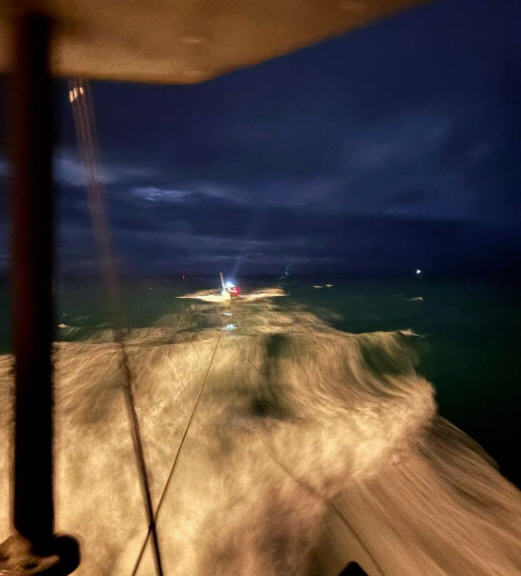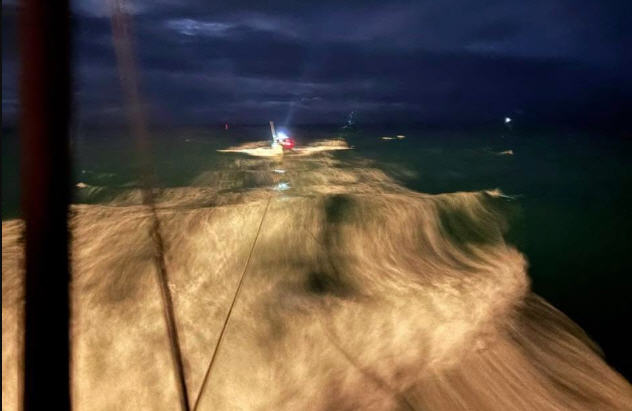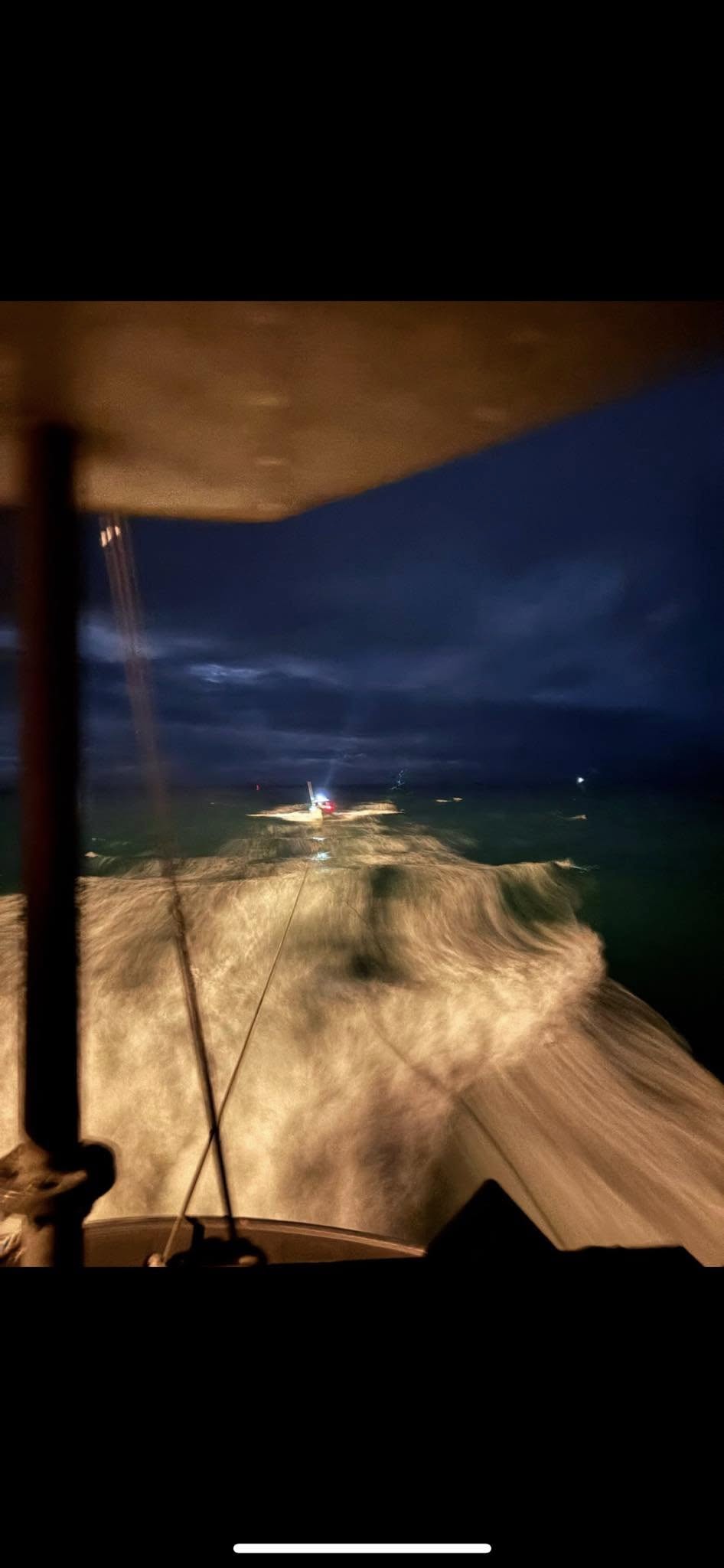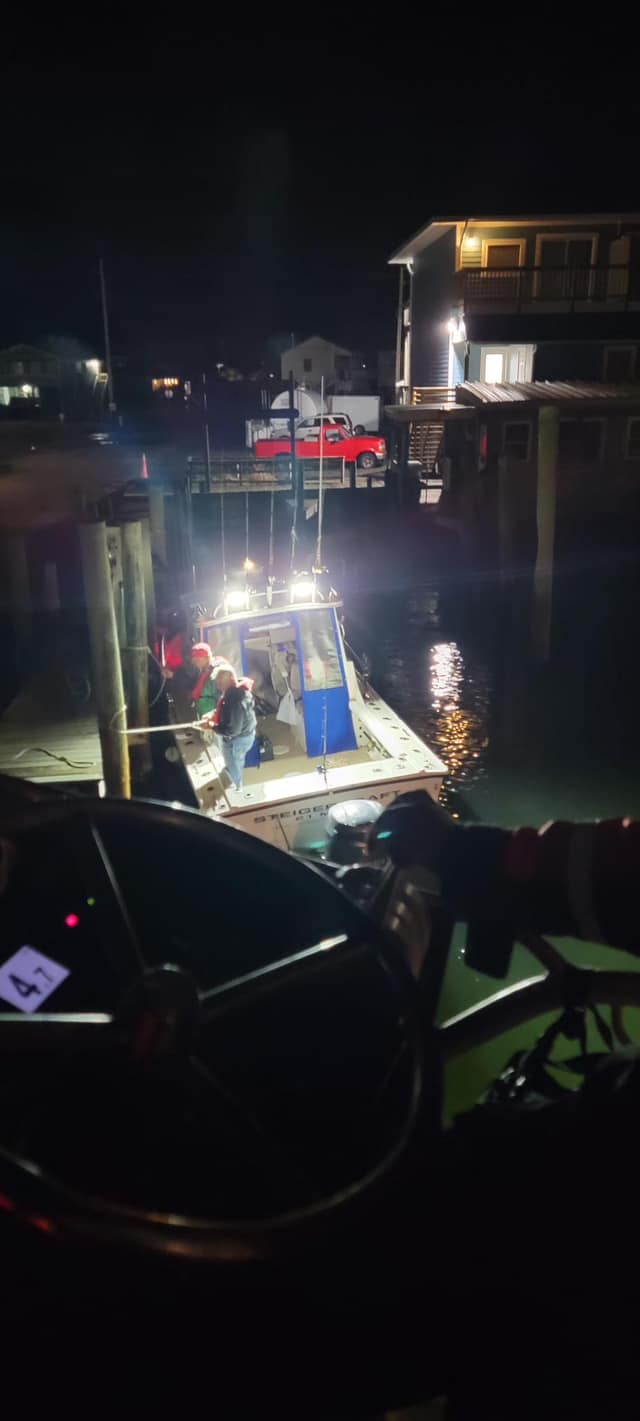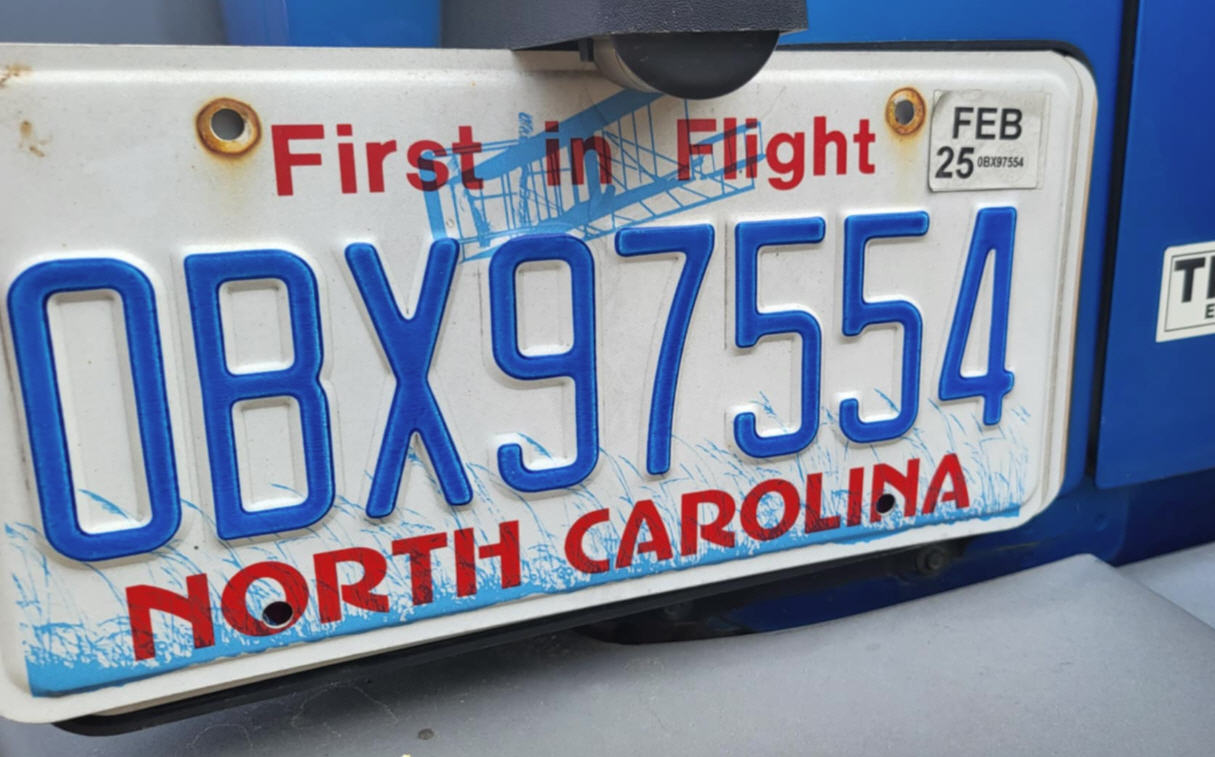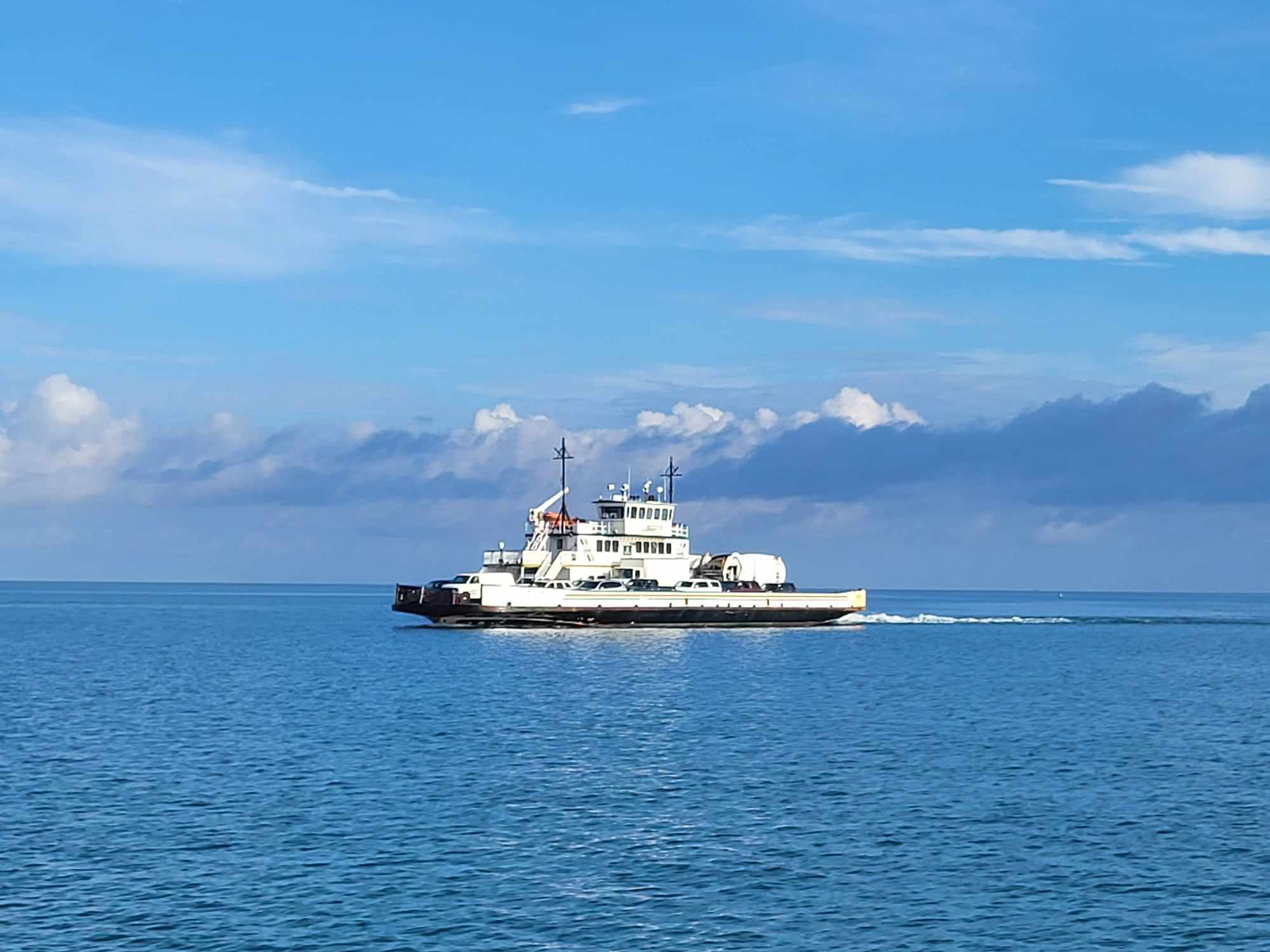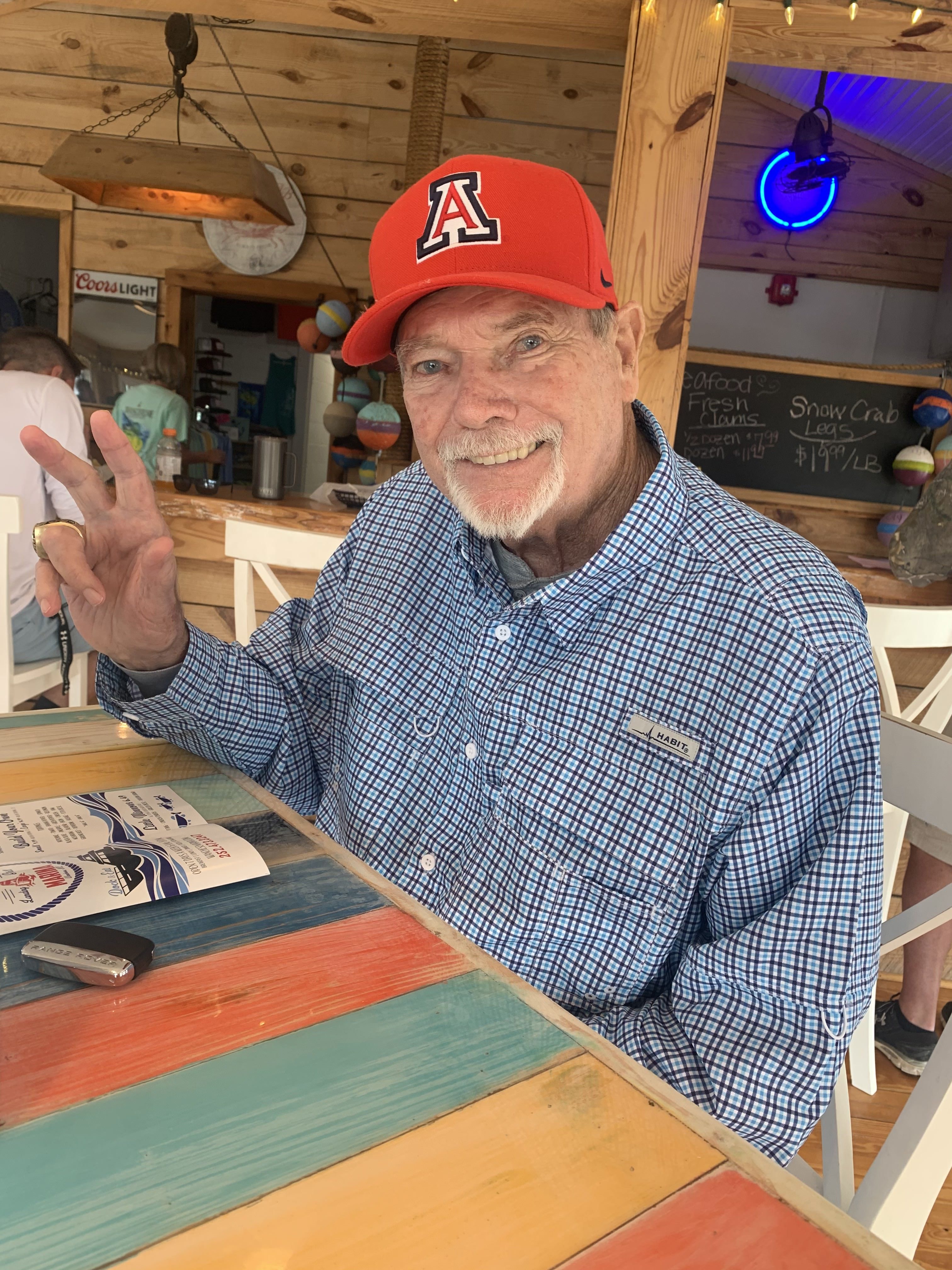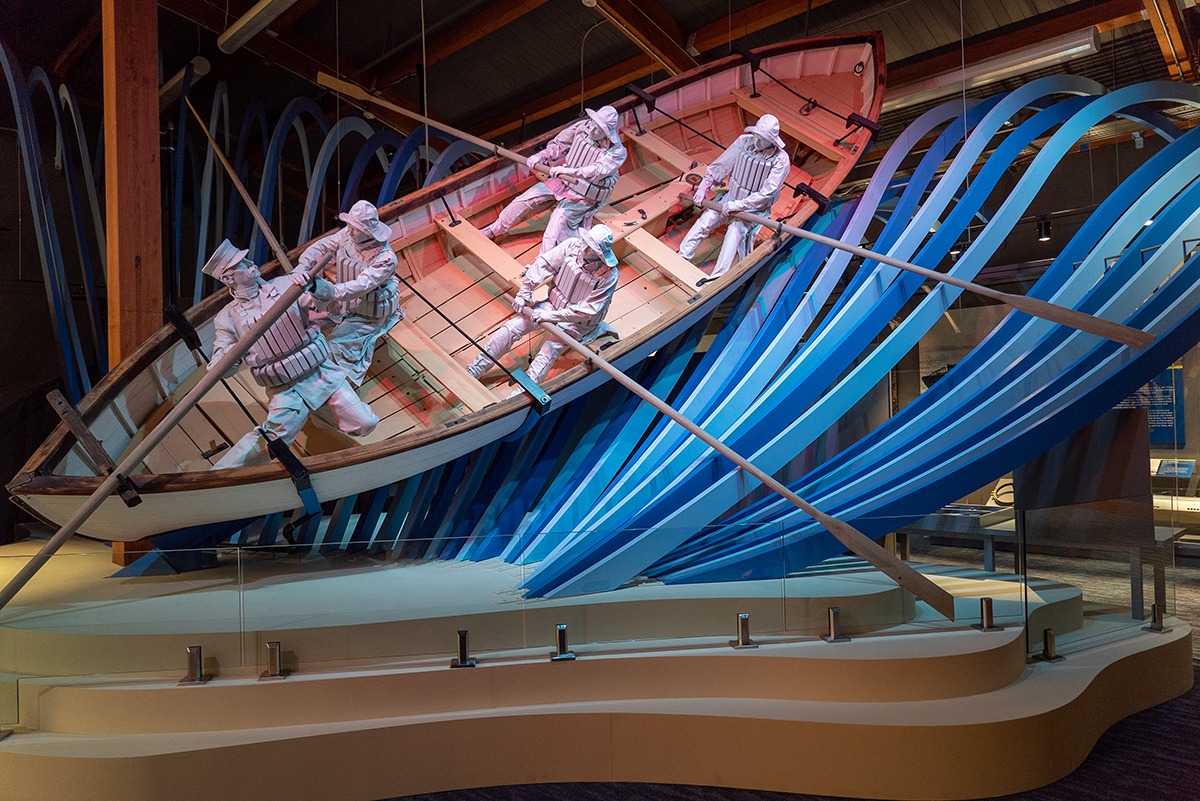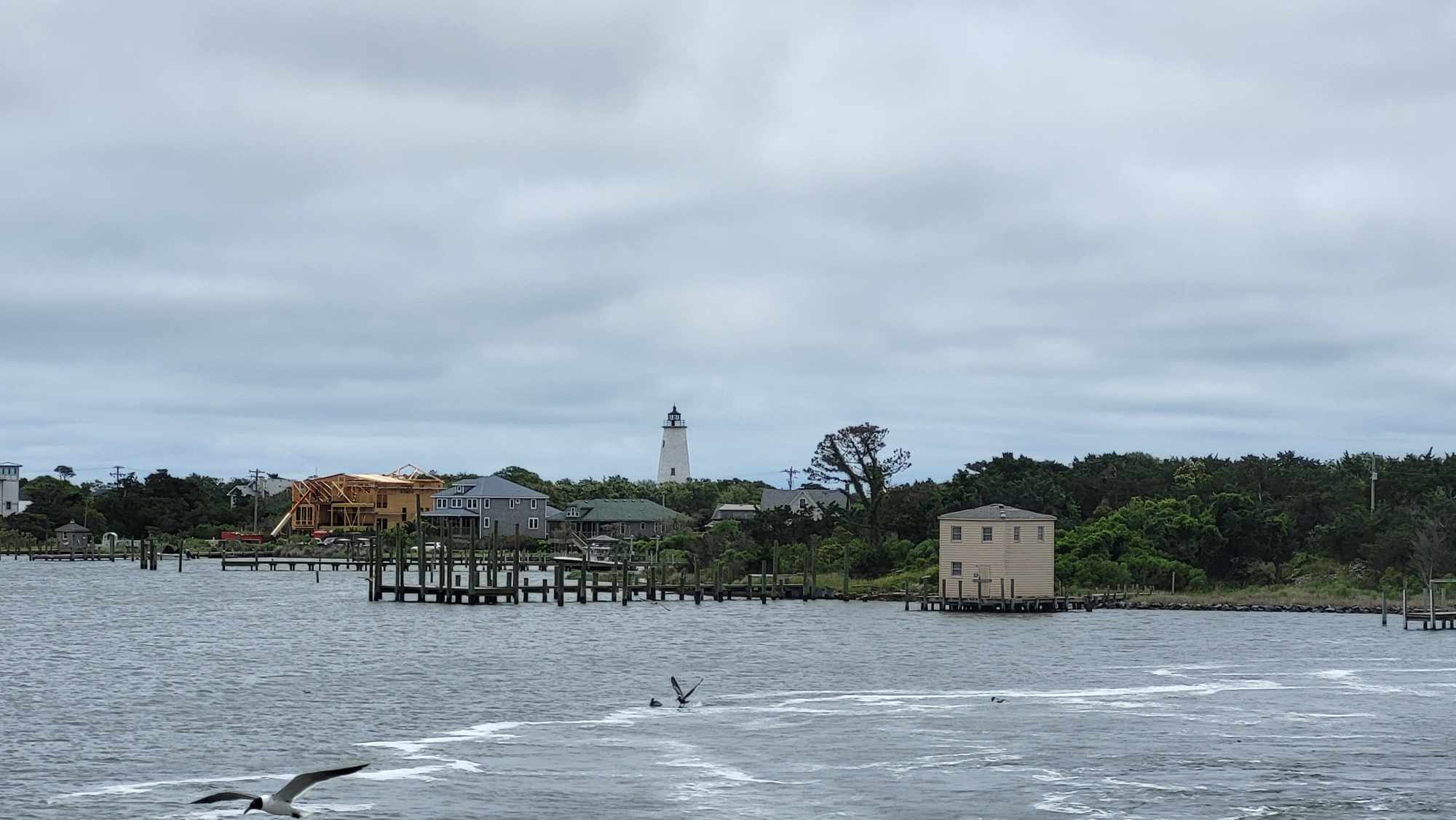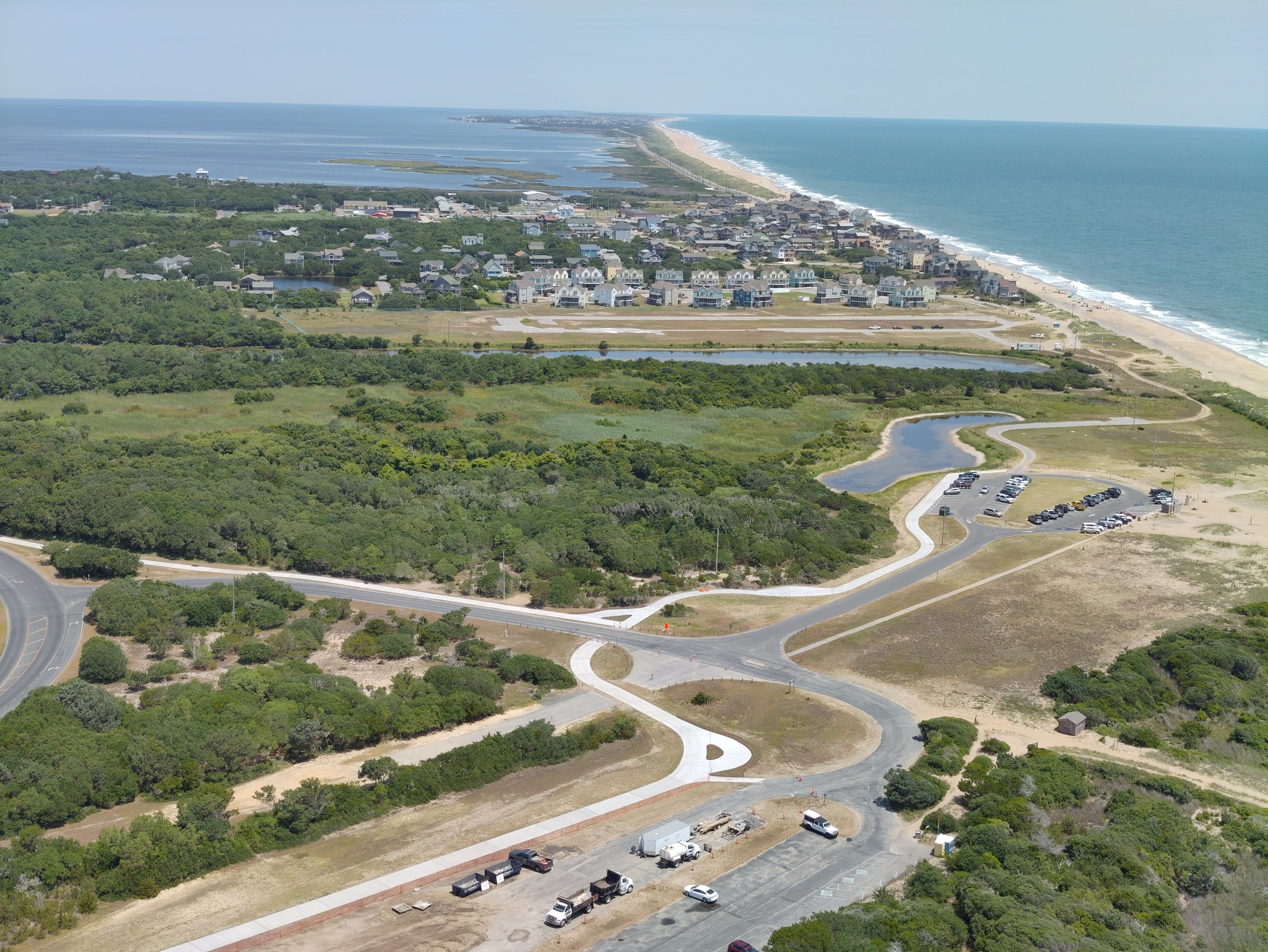By ANNE BOWERS
FEMA trailers were a lifeline to several families who were living like nomads after Hurricane Irene, which slammed into the North Carolina coast one year ago. Metal structures that measured only 12 feet by 30 served as temporary homes for several families who crammed into them over the winter while insurance claims were settled and homes were repaired or rebuilt.
There were 10 of the little trailers, which were delivered in early October of last year, and stayed on the site at Midgett Campground in Rodanthe until the end of May when the last one was removed. The trailers are not safe in hurricanes and had to be removed by the start of the tropical stpr, season on June 1.
“It was a blessing,” said Jean Hooper, 77, of Salvo who lived in one for three months with her husband, Bert. “It had everything we needed — a full size refrigerator, stove, double sink and a table with four chairs.”
Hurricane Irene was the worst storm she has ever seen – worse than the storm of 1944, which was the benchmark for bad storms in the tri-village area. The Hoopers had 14 inches of water in their home last August, which destroyed much of what they owned.
“It was devastating,” Jean Hooper began. “We sat on the front porch and watched our belongings go into the back of the trash truck. We lost our hutch, table, bureaus, beds. We lost a lot of stuff but we saved our home.”
Their house needed to be gutted to cut out the water damage, which can quickly lead to mold. The paneled walls had to be removed and the flooring was cut down to the sub floor.
With their home made uninhabitable from the super-sized hurricane, the couple lived in five different places before the FEMA trailer was available. They stayed with two different neighbors who lived nearby, with her brother, with a friend, and even at the Salvo Motel. But the tiny little metal trailer that sat at the campground behind Island Convenience in Rodanthe, gave them the privacy of home. They lived there for about three months and Hooper referred to their time there as “not that bad.”
Judy Williams, 58, lived in Waves all her life. Like the Hoopers, the house she had lived in for 32 years was severely damaged by storm tide. It needed to be gutted to repair the extensive water damage.
Following the storm, Judy and husband, Ronald, spent the first week with their son in Frisco, but the family got a break when Food Lion, Judy’s employer for the last 5 years, rented them a room at the Lighthouse View Motel in Buxton.
“Food Lion done me very well. They did a lot for a large corporation,” said Williams, “and I am very thankful.” Food Lion also donated ice and water to the community for weeks in two locations after the storm.
The couple stayed in Buxton until November when the FEMA trailers became available. With their daughter and their grandkids who also lost everything in the hurricane, they got two trailers right next to each other. They shared cooking. One trailer had a washing machine and the other had the clothes dryer.
The trailer provided a very tight space. The door was located near the center of the structure and upon entering, you either went straight into the bathroom, left into a bedroom that was the size of a standard bed or right into the kitchen with another tiny bedroom beyond it.
The kitchen had a full-size refrigerator, an apartment-size stove, and a tiny bit of counter with a kitchen sink. There was some room for dry goods under the counter. It came equipped with four plates and 4 forks, knives, and spoons set, plus a cheap set of pots and pans. The kitchen table had two chairs and a love seat for another two people that also pulled out into a twin bed, which is where Judy slept. Being nice, she described the housing as “ideal for one person.” No question, it was a tight living arrangement with no place to put things.
The lot fee was paid for by FEMA but the people living in the trailers had to pay the electric bill, which was almost $400 monthly for both places, according to Ronald Williams. There was no charge for the use of the structure.
T he Williams family celebrated Christmas in this metal structure located on a treeless lot that had lots of temporary trailers squeezed tightly together.
“I t wasn’t a very good Christmas,” said Judy. “We tried to put up some lights. Didn’t wrap the presents – just pulled them out of the trunk of the car and gave them to everyone.”
The Williams didn’t get their insurance money until November and were struggling to meet the April 1 deadline when they were supposed to be out of the FEMA trailer. They got $60,000 to fix their home, which only covered the materials, no labor costs. This forced the family to do most of the work themselves and to get help from friends and volunteers like the North Carolina Baptist Men’s group.
“A lot of people chipped in and helped us. We would have been in trouble if they hadn’t,” said Ronald.
Their home, which had been stripped down to the studs, was like a new house when they moved back into it this spring. It had new siding and walls, windows, doors, flooring and decks. It stands a little taller than it did and is now painted bright green – lime green with blue shutters.
The last weeks in the little white trailer seemed like an eternity for this family of six. Judy said, “I am ready to go home. I am tired of camping.” That doesn’t mean she wasn’t grateful.
“The morning after the hurricane, I was devastated,” Judy remembers. “You wake up and then you realize you have nothing. Lost everything.”
But, no one was hurt and their home could be rebuilt. With a little help from their friends and family, their time living in a tin can wasn’t so bad.
Sitting back home in her old, almost new home, Jean Hooper looks back fondly at her time living at the campground.
“The FEMA trailer was great,” she begins, “but it feels wonderful to be back home in my new home, sitting at my table, drinking coffee.”
FOR MORE INFORMATION
Click here to read more Island Free Press articles on Hurricane Irene.


